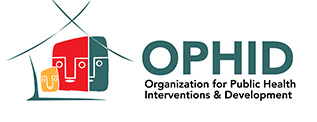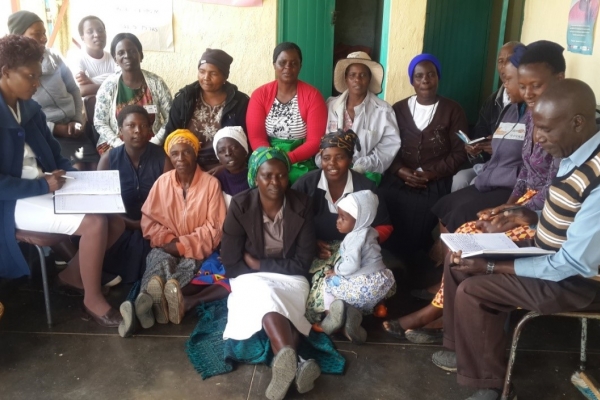Zimbabwe’s national health policy commits the Government “to ensure that communities are empowered to take responsibility for their own health and well-being, and to participate actively in the management of their local health services.” Health Centre Committees (HCCs) can be a mechanism to effectively integrate community participation towards a sustainable people centred health system.
Since 2013, HCCs have played a key role in overseeing the funding against service performance in maternal and child health activities. Respresentatives of the committees have have included respected community members (headmasters, councillors, village health workers, civil society representatives, representatives of youth and women), who collaborate with health service providers (nurses, environmental health technicians) to improve service delivery and uptake at local clinics.
OPHID’s Mbereko+Men project has harnessed the power of the Health Centre Committees in identifying local health problems and organising communities to take action for community development. This project aims to improve the health outcomes of mothers and their babies by setting up community-based, community-run Mbereko support groups. The Mbereko groups are designed to empower mothers and create an enabling environment to encourage women to seek and adhere to Maternal Neonatal Child Health (MNCH) and Prevention of Mother to Child Transmission (PMTCT) of HIV services in the crucial first 1000 days of a child’s life.
One of the objectives of the project is to improve community-health facility linkages for provision of quality, integrated essential MNCH services. This involves having a functional Health Centre Committee at each clinic, to serve as a link between the community and their clinic. The HCC is also responsible for establishing mechanisms to improve accountability, promote dialogue and feedback between the community and health providers.
To support the committees in carrying out their mandate, the Mbereko+Men project team facilitates monthly meetings with the HCCs. Together with health staff and project team, the HCC examines MNCH service uptake in targeted clinics, analysing quality of services offered, as well as community barriers to service access.
At Sadziwa clinic, the Health Centre Committee, made up of 2 male and 8 female members has embraced its role in promoting uptake of MNCH services. At the start of the project in 2015, the clinic had the lowest in terms of performance, compared to the other 7 clinics participating in the project. One of the gaps noted at project inception was the committee’s limited understanding of their responsibilities.
Following a series of capacity strengthening meetings, the HCC members prioritised the need to reduce maternal and infant mortality rate within Sadziwa clinic catchment area, through promoting institutional deliveries. Together with OPHID’s implementation of the Mbereko women’s groups and men’s meetings, the HCC’s influence and interaction with the community has contributed to ANC booking improving from 70% in January-February 2016 to 98% of expected deliveries in January-February 2017. Early ANC booking below 16 weeks has almost doubled (17% in January-February 2016 to 33% in January-February 2017). Clinic deliveries have improved from 34% in January-February 2016 to 72% in January-February 2017.
The energetic and committed HCC is now mobilising local resources to support initiatives aimed at addressing community barriers to institutional deliveries. They now provide food for mothers during their delivery at the clinic. They have successfully lobbied for the conversion of one ward to a Maternity Waiting Home to ensure that expecting mothers stay closer to the clinic when they are due for delivery. The committee is also providing baby wraps as incentives for those who deliver at the clinic, and providing fuel coupons for all maternity cases that require referral. Dissemination of information about health services to the community has also improved since each village is represented on the committee
A key lesson drawn from the Sadziwa case is that when they fully understand their roles, HCCs can play an active and important role in stirring positive community action towards improved health service uptake.


